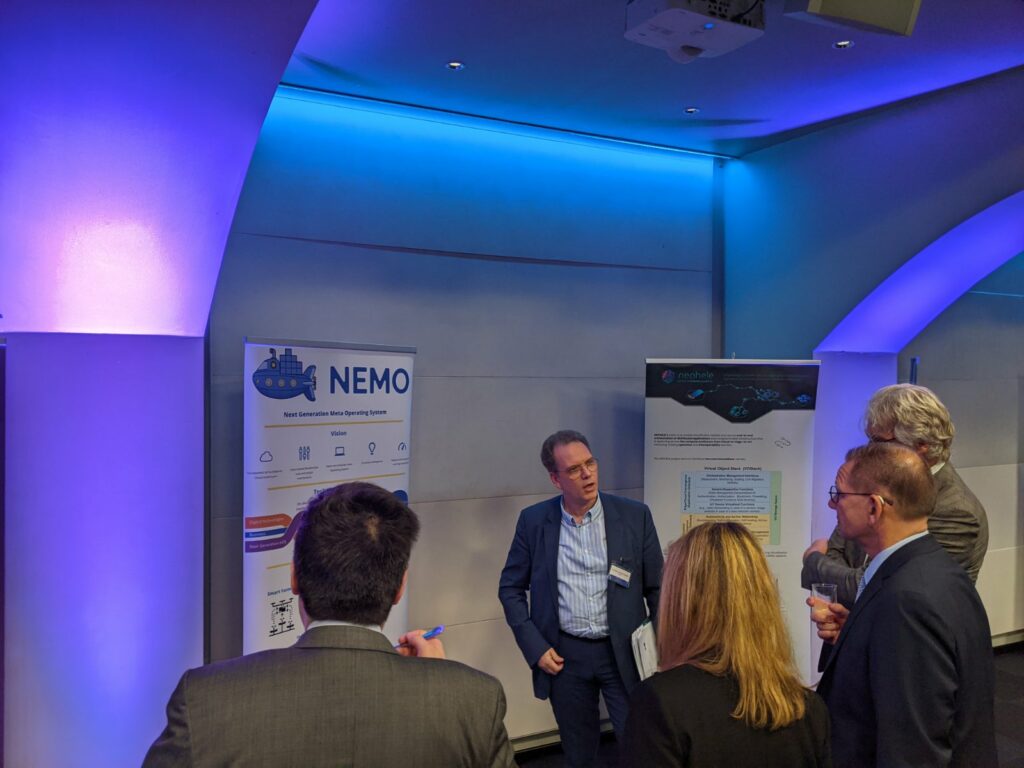Recently, the EUCloudEdgeIoT.eu initiative organized a “Concertation and Consultation on Computing Continuum” event that aimed to bring together industry experts, researchers, and policymakers to discuss the latest advancements in the field of computing continuum. The event focused on the concept of a computing continuum, which refers to the seamless integration of cloud, edge, and Internet of Things (IoT) technologies and the associated storage, computing and communication resources.
On the first day of the event the invited Horizon Europe RIAs which started in 2023 had the opportunity to pitch their projects and introduce the plans for the future, while the more mature Horizon 2020 projects and the Horizon Europe projects started in 2022 will discussed their assets, and shared lessons learned and success stories.
The second day shifted towards the identification of the building blocks for the next Horizon Europe Work Programme (2025-2027). Through a Call for Expressions of Interest with new trends, vision and tracks for research, several researchers, industrial players, SME representatives and policy makers had the opportunity to provide their vision on the Computing Continuum and the European potential.
One of the key takeaways from the event was the need for collaboration among different stakeholders to drive innovation in the computing continuum. Participants also emphasized the importance of addressing the challenges related to security, privacy, and interoperability to ensure the success of the computing continuum.
In this context, the NEMO project was presented to the participants by our coordinator Charalampos “Harry” Skianis from Synelixis. In fact, it was an important opportunity to interact with representatives from the H2020 projects to further discuss their results and present our
vision in a large audience of seasoned professionals, researchers and European Commission representatives. Moreover, there was extensive discussion on the EUCloudEdgeIoT Cooperation Mechanisms (task forces) and the specific contribution of NEMO in all task forces.
The rollup that was created for the occasion, thanks to Clío Beruete of UPM, allowed to communicate all aspects of NEMO and promote the coming open calls, attracting the attention of the audience. Moreover, Philippe Krief and Rosaria Rossini from Eclipse Foundation had the opportunity on several occasions to promote NEMO commitment to the open source direction and the importance of creating a vivid community around the MetaOS projects, namely: aerOS, FLUIDOS, ICOS, NebulOuS, NEMO and NEPHELE.

